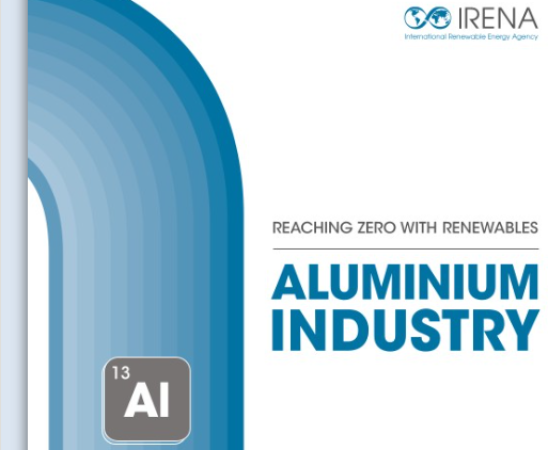
Follow India Renewable Energy News on WhatsApp for exclusive updates on clean energy news and insights
IRENA Report Outlines Path to Net Zero for Aluminium Industry Using Renewables and Recycling
Apr 07, 2025
The International Renewable Energy Agency (IRENA) has released a comprehensive report titled "Reaching Zero with Renewables: Aluminium Industry", highlighting how the aluminium sector can drastically cut its emissions and move toward net zero.
In 2021, the world produced 101 million tonnes (Mt) of aluminium—68 Mt from primary sources and 33 Mt from recycled (secondary) materials. The sector’s high carbon footprint is largely due to its enormous electricity needs, especially in regions like China where coal-powered smelters dominate. By contrast, Europe and North America use more renewable energy like hydropower and also lead in recycling.
Globally, aluminium production emits over 1.1 billion tonnes of CO?-equivalent annually, coming from direct emissions (like carbon-based anodes and fuel combustion) and indirect ones (mainly electricity). Because electricity is the biggest operating cost, access to cheap and reliable renewable power is becoming essential for competitiveness.
IRENA identifies three main pillars for transforming the industry:
- Switch to Renewable Energy: Aluminium smelters must use solar, wind, and hydro for electricity. Alumina refining should adopt electrification and green hydrogen. Long-term power purchase agreements (PPAs) with renewable suppliers are key to reducing costs and ensuring clean energy supply.
- Boost Recycling and Efficiency: The industry must push the share of recycled aluminium from 33% to 60% by 2050. Better design, improved scrap collection, and reuse will help cut demand for energy-intensive primary aluminium. Challenges include scrap contamination and inefficient collection systems.
- Adopt New Technologies: Innovations like inert anodes (which eliminate CO2 emissions during smelting), carbon capture, digital controls, and waste heat recovery can further cut emissions.
Progress is already underway with pilot plants and partnerships. But the path to net zero also requires strong policy support, improved recycling infrastructure, and continued R&D.